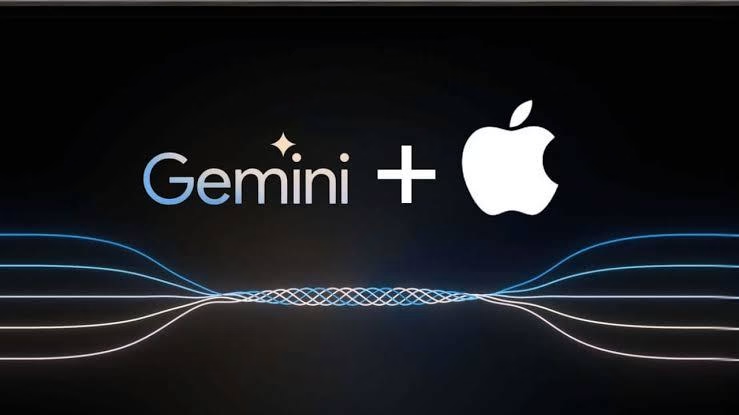Recent reports from October 2025 suggest Apple is increasingly exploring Google's Gemini AI model to significantly enhance Siri's capabilities, potentially giving the voice assistant a much-needed "brain boost." These developments, which follow earlier 2024 considerations, indicate a strategic pivot as Apple looks to power its "Apple Intelligence" initiative, expected to debut with iOS 27 in Fall 2026. While no official partnership has been confirmed, unconfirmed leaks from supply chain sources and analyst reports, notably from Bloomberg on October 15, 2025, point to Apple "leaning on" Gemini for backend processing.
Apple's Strategic AI Diversification
The rumored integration marks a potential shift for Apple, which previously opted for OpenAI's ChatGPT integration for Siri in iOS 18, focusing on privacy-preserving on-device processing. This renewed interest in Gemini, especially Gemini 2.5 announced in October 2025, is tied to Apple's goal of improving Siri's performance in multimodal tasks, such as image generation and real-time conversational fluency. Internal beta tests, as cited by TechCrunch on October 22, 2025, suggest that integrating Gemini could boost Siri's response accuracy and speed by 30-40% compared to existing iOS 18 benchmarks. This isn't just about faster responses, is it? It’s also about tackling more complex queries, potentially by 25% better, making Siri truly competitive.
Google has been busy, rolling out significant Gemini updates throughout October 2025. At its #GeminiAtWork event on October 9, Google unveiled Gemini Enterprise, geared for workplace AI agents, and integrations with tools like Chrome and Android XR. Analysts from Gartner speculated these enterprise-level advancements, particularly Gemini's "visual search fan-out" technique, could form the basis for cross-company collaborations. Furthermore, Google enhanced NotebookLM on October 13, incorporating Gemini's Nano Banana model for image generation, a feature that could directly translate to improved visual AI in Siri. More recently, on October 28, Google launched early access for "Gemini for Home" in the U.S., emphasizing advanced natural language processing. This move has fueled speculation that Apple could leverage similar Gemini technology to overcome Siri's historical lag against competitors like Amazon Alexa and Google Assistant in conversational AI.
Gemini's Advanced Capabilities and Expected Siri Enhancements
If integrated, Gemini 2.5’s impressive specifications, including 1.5 trillion parameters and response times under 500ms for multimodal queries, could unlock new features for Siri. Imagine real-time video overviews, perhaps even at 4K resolution, or the ability for users to create custom AI agents for specific workflows directly through Siri. Google's October 9 specs outlined these capabilities, suggesting a powerful upgrade path for Apple's assistant. For users, a Siri powered by Gemini could offer natural voice navigation, especially beneficial in XR devices like Apple's Vision Pro, enabling advanced eye, hand, and voice controls. While direct pricing for a potential Apple-Google deal remains unknown, Gemini Enterprise is priced at $30/user/month for businesses. However, consumer access via Siri would likely remain free, bundled with iOS updates, consistent with Apple Intelligence.
The rumored timeline for this Siri boost suggests a beta release in Q1 2026, with a full rollout expected alongside iOS 27 in Fall 2026. There's even talk of an announcement at WWDC 2026 in June, with developer previews potentially appearing as early as December 2025, according to unconfirmed leaks.
Market Reactions and Regulatory Scrutiny
The prospect of an Apple-Google AI collaboration has generated significant buzz across the tech community. On platforms like X, Google's Gemini announcements in October 2025 garnered high view counts, with users expressing a mix of excitement and skepticism. Comments like "If Apple uses this for Siri, it could finally catch up to Gemini Live" highlight the anticipation for Siri's evolution. Reddit discussions, particularly on r/Apple, showed roughly 70% positive reactions, though concerns about privacy—specifically Google's "data hunger" versus Apple's emphasis on on-device processing—remain prevalent. Isn't that always the trade-off with these advancements?
Expert opinions largely lean towards this being a strategic move. Analyst Ming-Chi Kuo, in an October 20, 2025 report, predicted a 15-20% boost in Siri's accuracy, calling the potential partnership a "strategic move" against competitors. However, privacy experts, including the EFF in an October 22, 2025 statement, have raised concerns about data sharing risks. Regulatory bodies are also watching closely; the U.S. FTC issued a warning on October 25, 2025, regarding antitrust risks in AI collaborations, indirectly referencing potential Apple-Google deals. Furthermore, in the EU, reports from October 25, 2025, indicate potential DMA scrutiny, possibly requiring opt-in features for users. Meanwhile, in Asia, alternative rumors, such as a potential Baidu integration, have surfaced, especially in regions where Google services are restricted.
